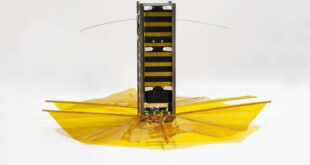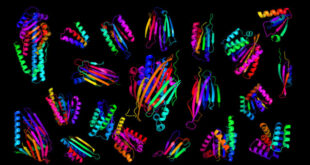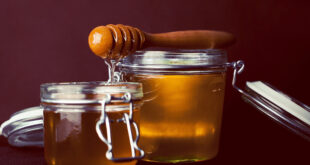In a new study published this month in the Journal of Medical Entomology, researchers from Aston University collected and analyzed 19,937 flying insects — including houseflies, ‘filth flies’ such as bluebottles and greenbottles and a variety of ’drain flies’ — from seven hospital sites in England. They found that nearly nine in 10 of those tested were carrying potentially harmful bacteria such as Escherichia coli, Salmonella and Staphylococcus aureus, either internally or externally on their bodies; and that more than 50% of bacteria were resistant to one or more antibiotics.
Hospital insects present a potential to contribute to persistence and spread of antimicrobial-resistant pathogenic bacteria in the hospital environment. Image credit: Virvoreanu Laurentiu.
“The results from this large-scale microbiological analysis show that a variety of flying insects collected from UK hospitals do indeed harbor pathogenic bacteria of different species,” said study first author Dr. Federica Boiocchi, a scientist in the School of Life and Health Sciences at Aston University.
“What’s quite interesting, though, is the high proportion of drug-resistant bacteria found in these samples. It’s a vivid reminder of how our over-use of antibiotics in healthcare settings is making infections more difficult to treat.”
The sample collection took place over an 18-month period, with higher numbers being collected in spring and summer.
The insects were collected from a number of locations throughout the hospitals using UV light flytraps, electronic fly killers and sticky traps. They included areas where food for patients, visitors and staff was prepared or stored, as well as wards, neonatal units and maternity units.
Over three-quarters of the insects collected were ‘true flies’ — a group which includes midges and common houseflies — with a further 14% being ‘true bugs’ including aphids.
A total of 86 bacterial strains were isolated from the insect samples.
The majority of bacteria belonged to the Enterobacteriaceae (42%), followed by Bacillus spp. (24%) and Staphylococcus spp. (19%). Less abundant were bacteria of the genus Clostridium (6%), Streptococcus (5%), and Micrococcus (2%).
A total of 68 bacterial strains were characterized for their antibiotic resistance profile.
The analysis showed that 52.9% of the strains were resistant to one or more class of antibiotics.
Staphylococcus spp. represented the highest proportion of resistant strains (83.3%), followed by Bacillus spp. (60%) and Enterobacteriaceae (31.3%).
About 19% were resistant to multiple antibiotics, a feature known as multi-drug resistance.
“We hope this study is useful for those in charge of pest management measures, for example by highlighting when insects are likely to be most prevalent and which are of the greatest risk to public health, therefore informing the selection of quality insect monitors and effective UV light traps to be installed, among other integrated pest management measures provided by professionals,” said study co-author Dr. Matthew Davies, of Killgerm Chemicals Ltd.
“It could also mean emphasizing the importance of replacing perishable components such as glue boards more frequently, and monitoring the insect catch closely, especially during the warmer months.”
_____
Federica Boiocchi et al. An Examination of Flying Insects in Seven Hospitals in the United Kingdom and Carriage of Bacteria by True Flies (Diptera: Calliphoridae, Dolichopodidae, Fanniidae, Muscidae, Phoridae, Psychodidae, Sphaeroceridae). Journal of Medical Entomology, published online June 21, 2019; doi: 10.1093/jme/tjz086
 #Bizwhiznetwork.com Innovation ΛI |Technology News
#Bizwhiznetwork.com Innovation ΛI |Technology News




